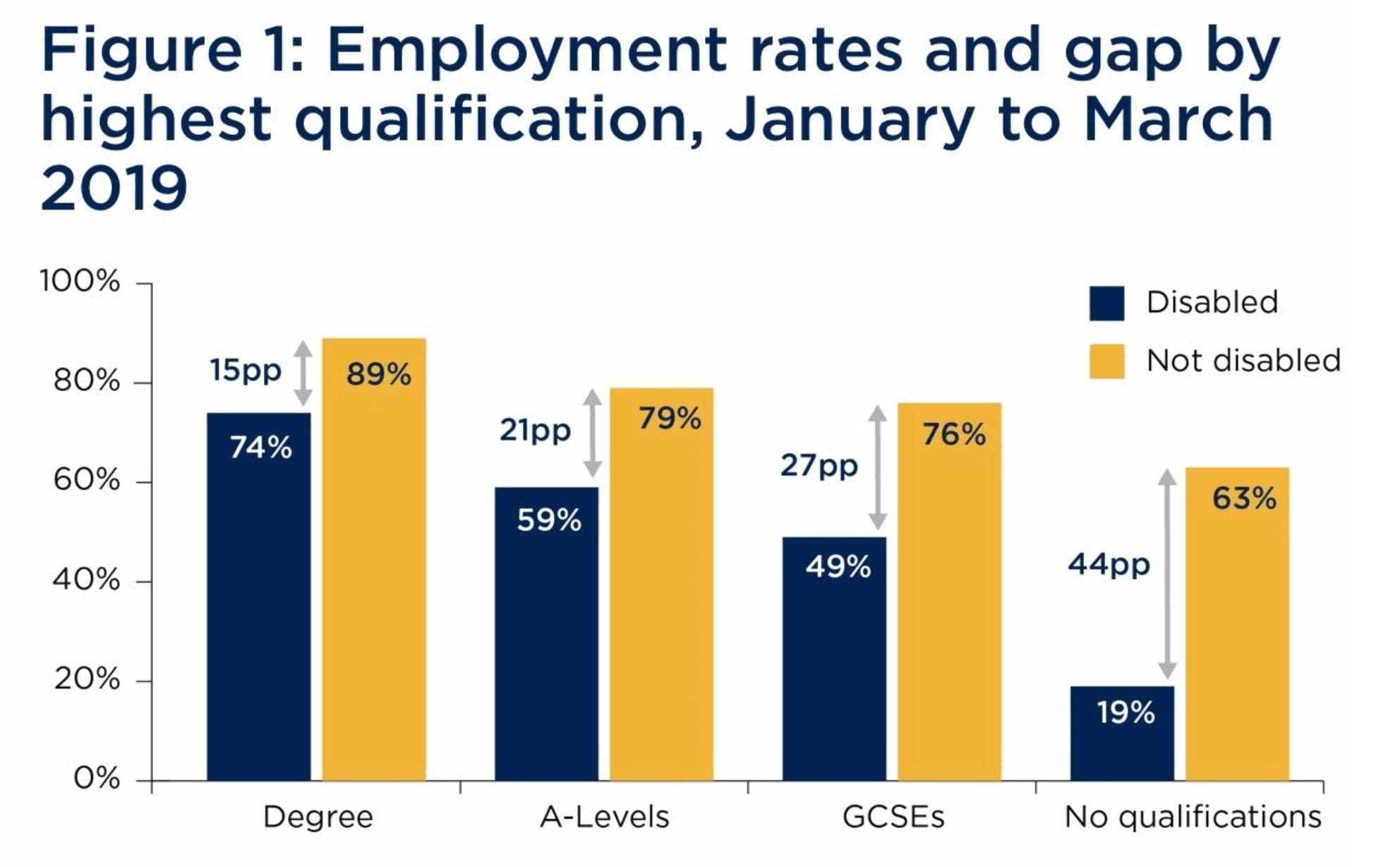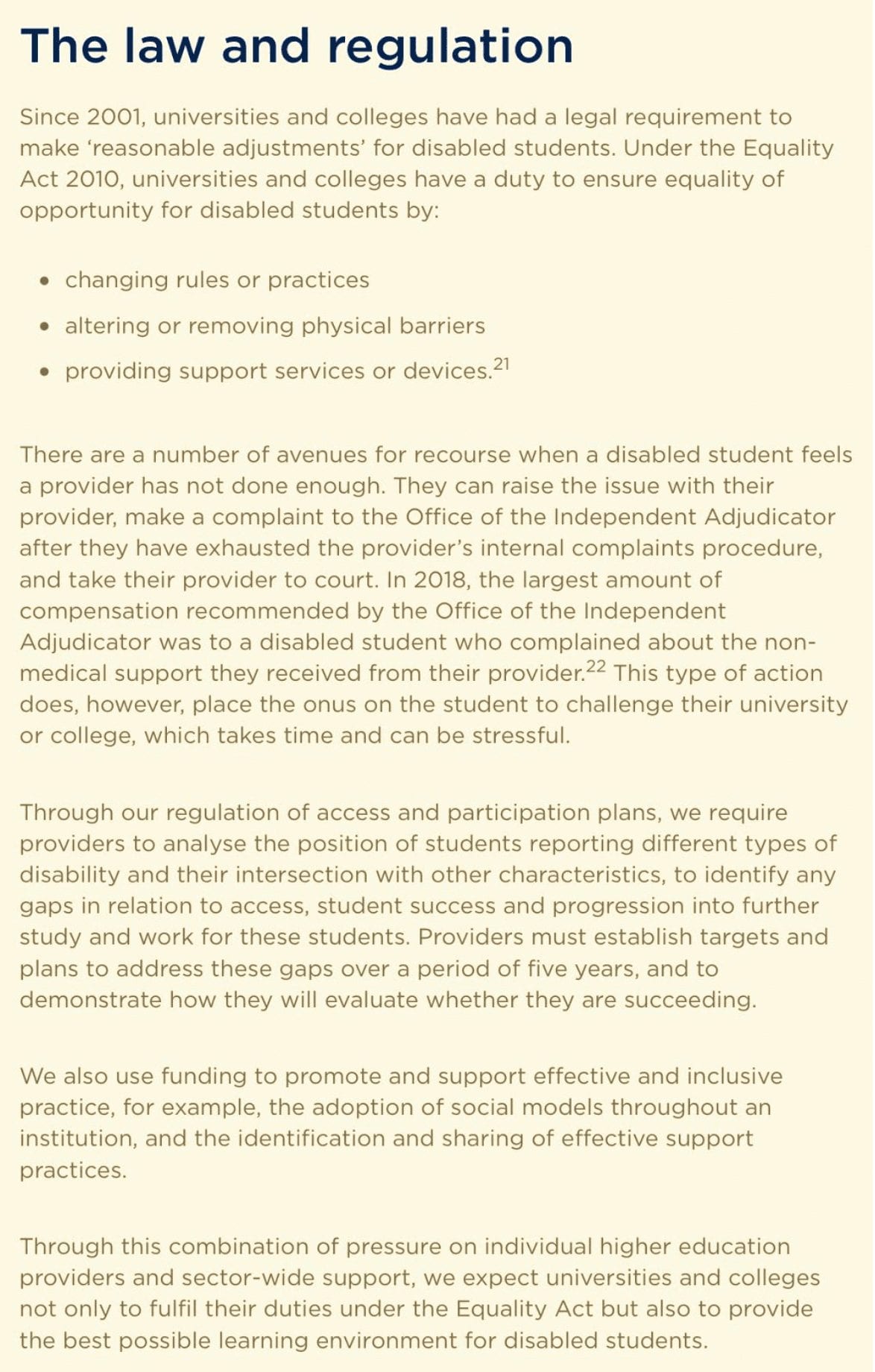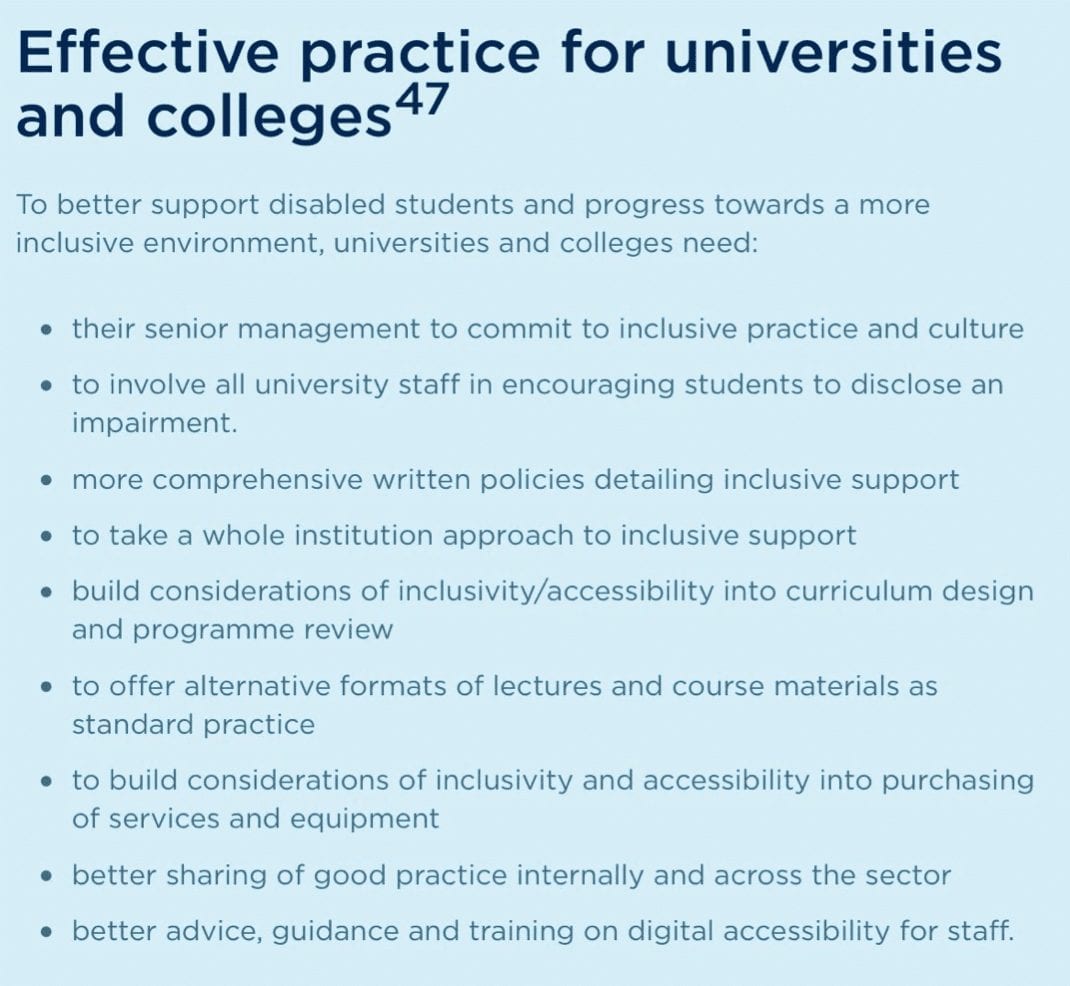Disabled students at UCA
During my five years at UCA, across both of the Kent campuses, I have experienced the range and differences in experience that disabled students encounter at UCA. There are some elements of experience that are common across all of our campuses, and some that vary from campus to campus.
Statistics
Disabled students are an increasing part of the student body across the university sector as a whole, with more and more students progressing from school and desiring, and being able, to continue their education on to higher education. The number of disabled students has actually more than doubled since 2003/4 and now makes up approximated 13.2% of the student body across the UK. However, the Office of Students has identified an issue arising from disabled students, that there has been a reported national attainment gap and a difference between the employment rates of disabled and non-disabled students of 15%.

Graph from the office of students website.
UCA’s Disabled students
As I mentioned previously, the experiences of disabled students can be split into two distinct groups, those that are largely universal to all students at UCA, and those that are campus specific and more locally based.
The campus specific issues that have been communicated through liberation groups include; equipment and facilities out of order for unspecified lengths of time with no information on when they will be repaired and reopened, most concerningly on at least two campuses this included lifts, without which large areas of the campus become inaccessible to students with mobility issues; some campuses have very few disabled accessible rooms, meaning that disabled students are place in normal flats in halls which may contribute to mobility issues; issues regarding film or media showings without subtitles or descriptions as needed have been reported, as well as many others.
The universal issues reported to disability liberation groups have included lack of recording of key lectures or availability of notes on line with which students can catch up; disabled students also have been reported as regularly falling through cracks in the disability and learning support system, including students not having required emergency escape plans and support plans put in place. Many students with invisible disabilities have found that teaching staff are also lacking in understanding and support in dealing with their conditions, and that this impacts negatively on their experience of university and in some cases their attainment.
Recommendations
The office for students sets out some recommendations of what universities and colleges should do to reduce the attainment gap and improve the experience of students, both legally and as policy outcomes.


What this paper is proposing is that the Students Union initiates some research into the experiences of disabled students, and how their experiences outlined above affect their entire university career. As disabled students are a minority group they deserve the same level of assistance and support as other groups such as BAME.
Following the research this paper would like to propose that a number of potential outcomes and actions may be taken by the Student’s Union to help improve the experience of disabled students at UCA:
- Conduct invisible disability training for program directors and above? – this will provide teaching staff with a working understanding of what it is like living day to day with invisible disabilities such as chronic fatigue. Although it would be ideal to provide it to all teaching staff, the management team ultimately deals with any complaints, mitigating circumstances or appeals.
- Push the implication of lecture capture across the university? – this will actually benefit all students across the university, however it will particularly allow disabled students to keep on top of their work, whether the lecture was missed due to access issues or ill health, or it needs to be revisited.
- Recommend the implementation of a second text alert system? – this system would give campus specific updates daily on any broken or out of service facilities, workshops
or other key areas, especially those limiting access. This allows disabled students to plan their time and energy effectively. The infrastructure for this should already be in place due to the severe weather text alerts.